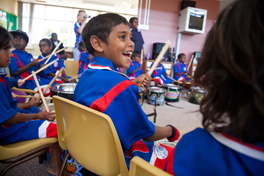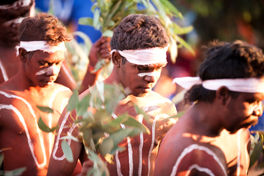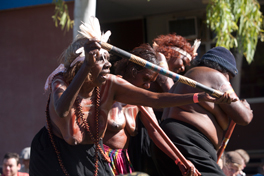Philosophy, Aims & Values
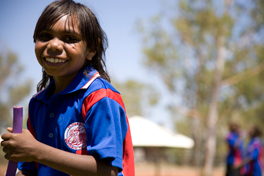 Music Outback Foundation believes that Indigenous children in remote Australia should have equivalent opportunities and outcomes to mainstream Australian children in education, cultural empowerment and self-esteem.
Music Outback Foundation believes that Indigenous children in remote Australia should have equivalent opportunities and outcomes to mainstream Australian children in education, cultural empowerment and self-esteem.
We believe local communities have the knowledge, understanding and commitment to determine their own future, and that innovative education practice is an essential step towards Indigenous community empowerment and self-determination. As a creative organisation from across Australia working in remote communities for more than a decade, we have experienced first hand the mutual interest in developing creative, long-term and meaningful relationships between remote Indigenous people and mainstream Australians.
Music Outback Foundation believes it is through the kindling of these long term relationships that such equivalent opportunities and outcomes will be achieved.
Aims and Values
Through our programs Music Outback Foundation enacts the following core values:
- A passion and commitment that Indigenous children should have the same opportunities for cultural expression as mainstream Australians
- A belief in the power of music and the arts as a pathway for learning
- A belief in the power of Indigenous culture to inspire and guide Indigenous learning
- A belief in the importance of parent and community adult engagement in school-based learning as a pathway to improving school outcomes
- A belief that learning must be relevant to the environment and context of remote communities and the people who live in them
- A respect for Indigenous culture and traditional Indigenous education systems
- A commitment to adapting a holistic and flexible approach to every region and community
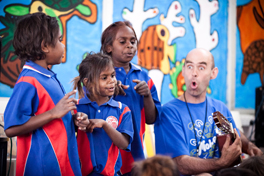 Continuity and Sustainability
Continuity and Sustainability
Music Outback Foundation operates under the principal that continuity and sustainability are essential factors in program design and delivery in remote Indigenous Australia.
We recognise the constant challenges of school based education in remote locations and believe that the building of long-term relationships between students and teachers is critical to its success. With figures as low as 7 months having been reported as an average length stay for remote teachers in their first posting at remote government schools, Music Outback believes it is vital to address these issues in the very structure of program delivery and design.
With continuity a priority, Music Outback workshops are delivered as intensive programs of one week in length each school term, leading to the culminating festival Mobfest, which takes place annually in each region. Our musician educators commit to a teaching circuit that has them return to the same remote schools every term, choosing no more schools than they can commit to on a sustainable basis, and therefore ensuring their regular commitment to these schools fits in with their own long term professional life. Music Outback facilitators also support their students at Mobfest each year, and this annual cycle of learning has consistently produced strong and inspiring outcomes for remote Indigenous young people, backed up by long-term meaningful relationships between Music Outback teachers, students, schools and community members over many years.
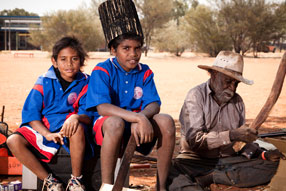 Community Engagement
Community Engagement
MOF believes engagement with community leadership is an essential element when working in remote communities, whether delivering programs through the schools or any other point of access. Furthermore, MOF understands at a core level that the wishes of community in terms of program delivery should form a key element of program design, and that community members should have every opportunity to be part of that delivery. MOF’s pathway to community involvement includes participation in Mobfest events as facilitators to deliver Traditional Culture workshops and performances, regular collaborations during school workshops to lead language song-writing content and seeking out local adult musicians as potential MOF facilitators.
